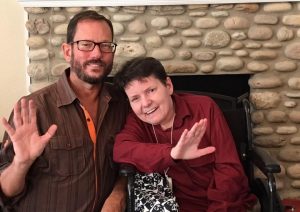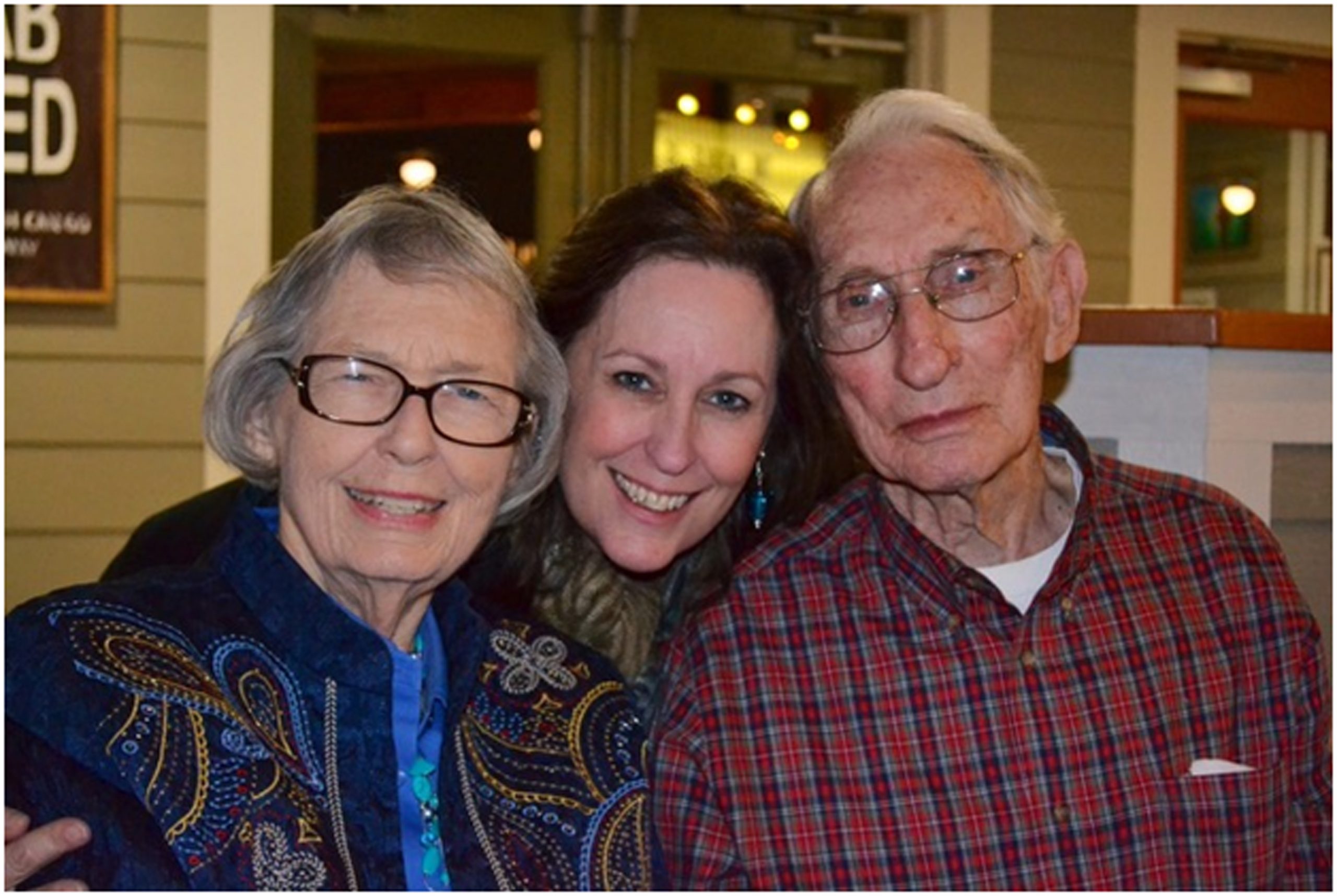Sara Sroufe was busy sewing masks for the residents and staff at her parents’ assisted living facility in Dallas when she learned that both parents had tested positive for COVID-19. Her parents were taken to the hospital. Her mother was soon released, and Sara brought her home to care for her. Sara’s father died a few days later.
One of the crueler aspects of this pandemic is that family members are forced to go it alone – in many cases, they are having to watch from afar as their loved ones die, and they are then left to grieve without the comforting presence of family and friends or the ritual of a funeral.
“My father died alone,” Sara said. “He was in a sterile, cold, pressurized room and had to look at people in space suits with masks. To know that we weren’t with him has been really hard for me.”
The family couldn’t all be together even when telling their mother that their father had died. Sara’s sisters stood outside her mom’s bedroom window as Sara, wrapped up in all the PPE she could find, gently broke the news to her mom. “There was no way I wasn’t going to hold her,” Sara said.
Because of his COVID status, his daughters had trouble finding a funeral home that was willing to accept their father. They were not able to have a funeral; they were permitted to go to the cemetery but had to stay in their cars as their father was lowered into the ground. Their view was mostly blocked by a bulldozer.
“As humans, we are made for proximity, especially in times of great transition and uncertainty,” explained Nancy McCranie, Hospice Austin’s Director of Volunteer and Bereavement Services. “When we are able to be physically near people who love and support us, our brains release chemicals that help us manage the stresses and strains of life. The global pandemic has interrupted our time-tested rituals, separating us from the very people we long to be near, requiring us to shoulder burdens we would ordinarily share. For some of us, that has made this season of grief exceedingly difficult.”

Suzy and Jeff Wagers
Jeff Wagers recently lost his 55-year-old sister, Suzy, to multiple sclerosis. She was in a nursing facility which, of course, had to close to visitors. Jeff said it was hard watching her decline for seven weeks over Facetime and not being there to hold her hand. He wonders if her isolation cemented her realization that it was time to go. By the time he was able to visit her in the hospital, she was in a coma.
“I live in Austin and no other family lives in the area,” Jeff said. “We wanted to do a memorial service in August but now we’re questioning if that’s a good time. We want to say a goodbye and we want to be able to say it in person. The pandemic is making a horrible situation even worse.”
Hospice Austin recently hosted an online memorial service over Zoom for people who have lost loved ones and aren’t able to hold services as well as for those whose grief has been amplified by the pandemic. The memorial service included a nonreligious service, poetry, and music. Afterwards, participants were able to stay and share about their loved one. It created a sense of community as everyone talked about who they had lost and their experiences in honoring their loved ones during this challenging time.
It helps to be creative and find a way to still celebrate a loved one’s life in a community. One of the participants lost her 23-year-old niece in another state and attended a drive-by ceremony via phone where people could stop and share memories and virtual hugs. Sara’s dad was a veteran and he hung the American flag at his home every day. Sara and her sisters asked their friends on Facebook to hang a flag in his honor and post a photo of it. They received an outpouring of photos and posts of flags from across the country and even in Italy and Ireland.
Hospice Austin is continuing to host online bereavement support groups and counseling sessions, as well as an anticipatory grief group for loved ones of terminally ill patients. For more information about any of these programs, please visit Hospice Austin.org/bereavement or call 512-342-4700.
“One of the sweetest parts of the memorial service was looking at people’s faces,” Sara said. “We’ve all worn masks for so long. There was a connection, even though we didn’t know each other. I was looking in people’s eyes – you could see pain, grief, compassion. I felt loved and listened to and affirmed. And that’s what we need to heal.”

Melinda Marble
Communications Coordinator





